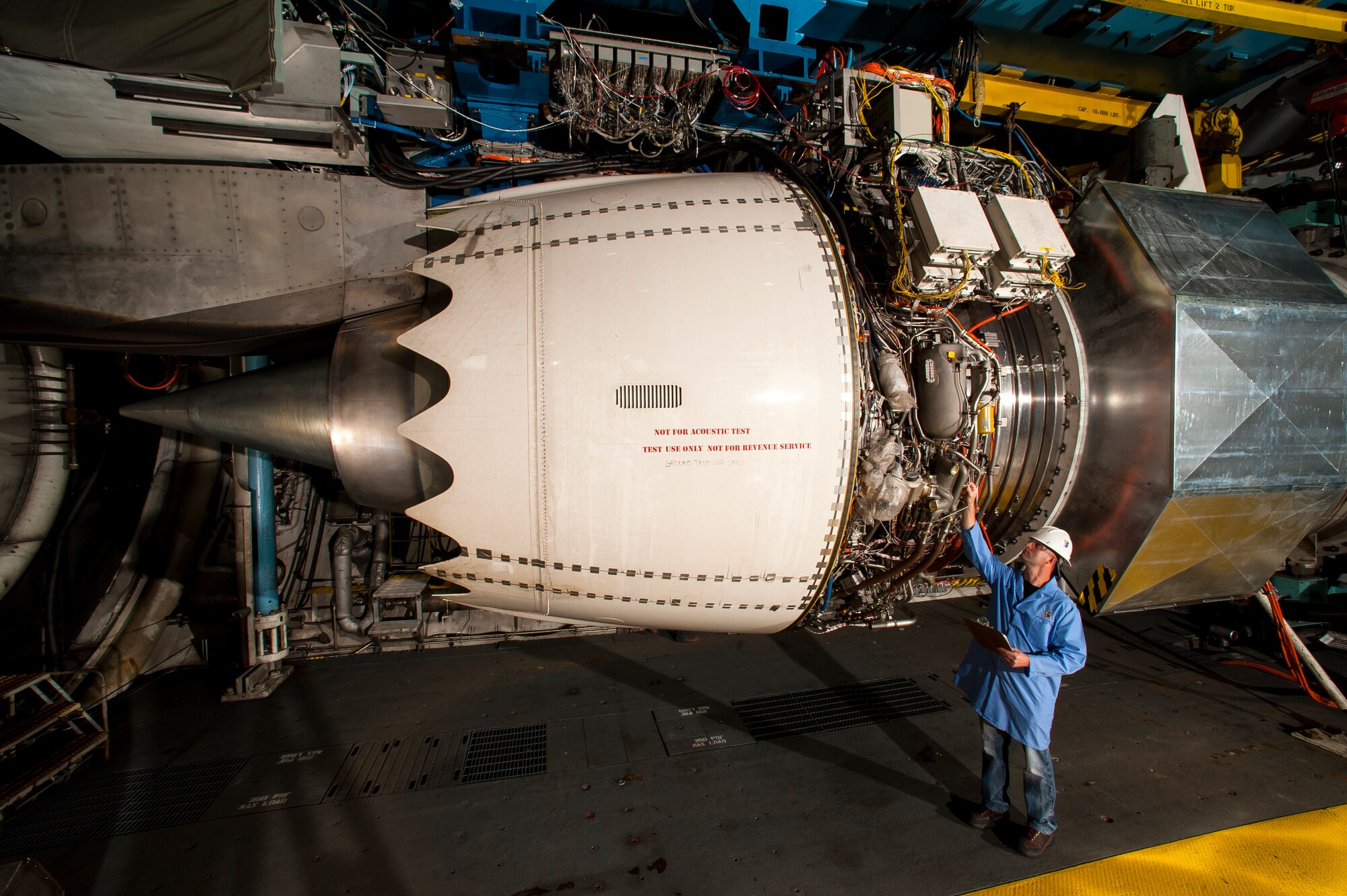EN 359 Specific Fuel Consumption (SFC) Testing
The EN 359 standard sets out the procedure and requirements for measuring specific fuel consumption of gas turbine engines. This testing is crucial in aerospace and aviation as it directly impacts engine efficiency, which is a critical factor in reducing operational costs and environmental impact.
In this test, the fuel flow rate (kg/h) and the shaft power output (kW) are measured over time to calculate the specific fuel consumption. The formula used for SFC calculation is:
This ensures that the engine's performance and efficiency are accurately assessed. The testing procedure involves running the engine under various operating conditions to simulate real-world scenarios, including startup, idle, cruise, and full power operation.
For this test, the specimen prepared is a gas turbine engine or its representative part. Preparations include ensuring all components are clean and free from contamination; calibrating instruments such as flow meters, pressure sensors, and torque transducers; and setting up the testing environment to meet the required conditions.
The instrumentation used for this test includes high-precision flow meters, power meters, temperature probes, and data acquisition systems. The results are recorded and analyzed using software that adheres strictly to EN 359 standards. The final report includes detailed information on the fuel flow rate, shaft power output, and calculated SFC values under different operating conditions.
- Why Choose This Test:
- It helps in optimizing engine design for better efficiency.
- Serves as a benchmark for comparing different engines or modifications within the same model.
- Promotes compliance with international standards and regulations, enhancing marketability.
Why Choose This Test
The EN 359 Specific Fuel Consumption (SFC) test is essential for aerospace and aviation manufacturers to ensure their products meet stringent environmental regulations. By accurately measuring the fuel efficiency of gas turbine engines, this testing ensures that new designs or modifications are optimized for performance and sustainability.
- Benefits:
- Enhanced engine efficiency leading to reduced operational costs.
- Better compliance with international standards such as EN 359, thereby enhancing marketability.
- Promotion of sustainable practices by minimizing fuel consumption and emissions.
Environmental and Sustainability Contributions
The EN 359 SFC test is pivotal in the aerospace industry's commitment to environmental sustainability. By optimizing fuel consumption, this testing helps reduce greenhouse gas emissions, which are a significant concern for global aviation.
- Environmental Impact:
- Serves as a key tool in the development of more efficient engines that contribute to lower carbon footprints.
- Promotes the use of renewable energy sources by reducing dependency on fossil fuels.
- Aids in meeting international environmental agreements and standards, such as those set forth by the International Civil Aviation Organization (ICAO).
Competitive Advantage and Market Impact
The EN 359 SFC test provides a clear competitive edge in the aerospace market. Manufacturers that adhere to this standard are better positioned to meet regulatory requirements, thereby reducing compliance risks and costs.
- Market Impact:
- Enhances brand reputation by demonstrating commitment to environmental stewardship.
- Promotes innovation in engine design, leading to new product offerings that are more efficient and sustainable.
- Sets the benchmark for industry standards, encouraging competitors to follow suit.





